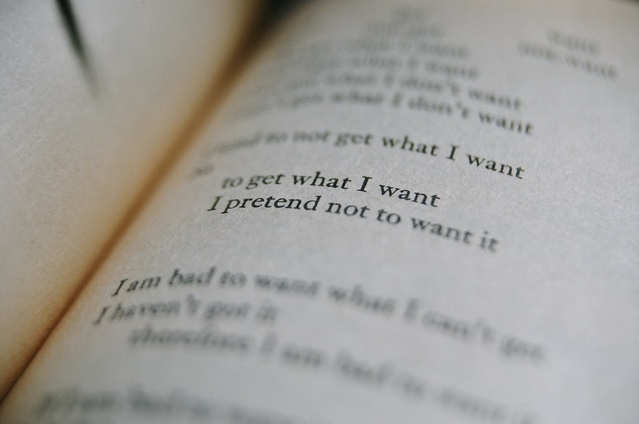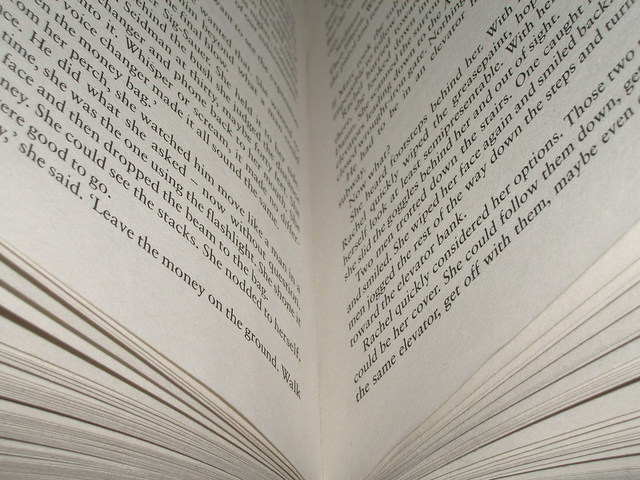“Try shrinking your ego and expanding your brain!” she yelled.
“Eh? I got a distinction in Physics and a scholarship for my masters…and you’re telling me to expand my brain?”
She marched out and slammed the door so hard that I thought the cottage would crumble to the ground. An image rushed to my head of a cartoon house all collapsed, apart from the door.
It wasn’t that we hated each other; we were just going through a rough patch. I thought that getting away for awhile would help. But whenever I suggested anything interesting, she’d cut it down like a tree. Crash it would go, my big idea, felled and without hope of rising again. The same went for my communication skills. Whenever I tried to express myself – even when I wasn’t being sarcastic – she’d say, Stop being so sarcastic! Or she’d accuse me of using clichés. Christ, she had no idea how painful it was. The words were there, forming in my brain, but they couldn’t get out. Something had gone haywire in the signal from the head to the mouth. Something had short-circuited.
I had two choices: I could either sit there moping, or I could go and find her, try to sort things. I drained the Lagavullin from my glass, steadied myself and went out. The grogginess disappeared as soon as the cold air hit me. My head felt as clear as the black sky, dotted with stars that poked through like shards of glass.
She couldn’t have gone far. She was probably hiding round the corner, in the shed, or on her way back, full of apologies and remorse. She’d lower her voice in the way she always did when she realised it was her fault, then would set her eyes on me, pleading for forgiveness and the desire to bring everything sailing back down to normal. She might even offer to make the tea (for once) and help me with the fire, soothe my head with her gentle fingers and tell me that she loved me. Just for once, she might consider doing any of these things. But I thought about it again and…well, probably not. I kept moving, trampling over damp, cold leaves that slid and squelched underfoot.
We were about halfway through our fortnight up here. She wanted to go somewhere warm, but I had to have my little place in the Highlands: dramatic mountains and hills, misty shores and white sandy beaches. It had all the trappings of a tropical island, complete with palm trees – except that it was fucking baltic, and I loved that. She hated it. At least there was the fire. She could get cosy and snuggle up with a book or something – or with me. But that wasn’t really an option. Sex was a distant memory, usually a month or two back in time.
It was dead quiet, apart from the leaves and my breathing, which was getting faster. My ears were starting to burn with the cold, even under my hat. My nose stung and my mouth was getting a wee bit numb. The thought of giving up on her crossed my mind, a way of losing one life (hers) by saving another (my own). But even I couldn’t be so heartless. No matter how much we irritated each other, there was something keeping us together, some invisible thread that might at any moment snap, if one of us wasn’t careful.
Where the hell was she? This had to be one of her pranks. She was trying to get back at me for coming here in the first place. It’s not as though a holiday in a warm place would cost much more, she’d said, with petrol and the outrageous prices they charge for food. But I needed my head space. Going to Sicily or the South of Spain would mean people, everywhere people – lying on beaches, looking at buildings, trying to avoid all the other people doing exactly the same things that they were doing. Here in this bonnie wee part of the country, you could breathe, feel the air and watch the sea, look at the hills turning orange, gold, bronze, red, in the sunset. But Madrid had lovely sunsets, too, she’d said. And why, for god’s sake, did hardly anyone bother travelling here at this time of year, if it was so bloody special? Surely you’d have to be mad to stay in a place like this in the middle of winter. Such was her perpetual rant against all things cold.
The path was hidden, though the shed was easy to find. Even in the dark, it was darker than the darkness – kind of spooky, she’d said the first day we arrived. The wood was falling to bits, and there’s no way I’m going in there, she’d kept saying. I don’t care if I freeze to death, but there’s no way I’m venturing into that black pit full of spiders and creatures and god-knows-what breeding in there. Fine, I’d told her, freeze to death then, see if I care. But I’d barely got the words out, and the invisible thread was tugging at my heart, so there was no chance of making good my promise.
No one came to the shed. It was “out of use” according to the notes from the agency. When we got here, I assumed it was because of the long walk through dangerous, wet leaves. They wouldn’t be insured for someone slipping and breaking their neck, so it was out of bounds. I couldn’t ask anyone for help, either. All the nearby cottages were devoid of life: holiday homes. It was a ghost town, minus the town. But something told me she was in the shed, so I kept walking towards it. More careless people might trip and fall, but not me.
I was looking down at the leaves, trying to keep an eye on their glint in the dim moonlight, when a noise went shooting right through me. Sounded like a woman screaming or laughing, it was hard to tell which. It wasn’t quite human, but so familiar. It got trapped inside my brain without a hope in hell of escaping anytime soon. My head was pounding, aching and filled with the sound. And just when I thought it was impossible to get any louder, it did, weirdly in synch with the wind picking up. I felt like one of those bonkers characters from the Planet of the Apes films, controlled in body and mind by freaky subterranean folk.
It really did feel as though my brain would explode, and at that moment I saw something move and flash. I froze. Light beamed onto the ground, and there was my shadow in front of me. I’d forgotten about everything, the noise, our argument, the cold. The light was so bright it felt almost warm against my back. For a second I thought I’d been abducted by UFOs. Then the sound came back, but without the pain. It was almost soothing. I knew I wasn’t in one of those bizarre horror flicks where everything stops at the right dramatic moment, background music and all.
I turned round and there she was, standing in the upstairs bedroom, waving at me from the window. Her face looked small. I couldn’t tell if she was smiling, but she looked happy, almost as happy as if we’d gone to a warm place.
Nalini Paul was born in India, grew up in Vancouver, and has been living in Scotland for 15 years. Her poetry and prose have been published in anthologies and literary magazines in the UK and New York. She has received a number of grants from the Scottish Arts Council to develop her work, including a recent project that sent her to India to conduct research for a novel. She lives in Glasgow and teaches Creative Writing at the University of Glasgow. This is an extract from her short story, Cold.

